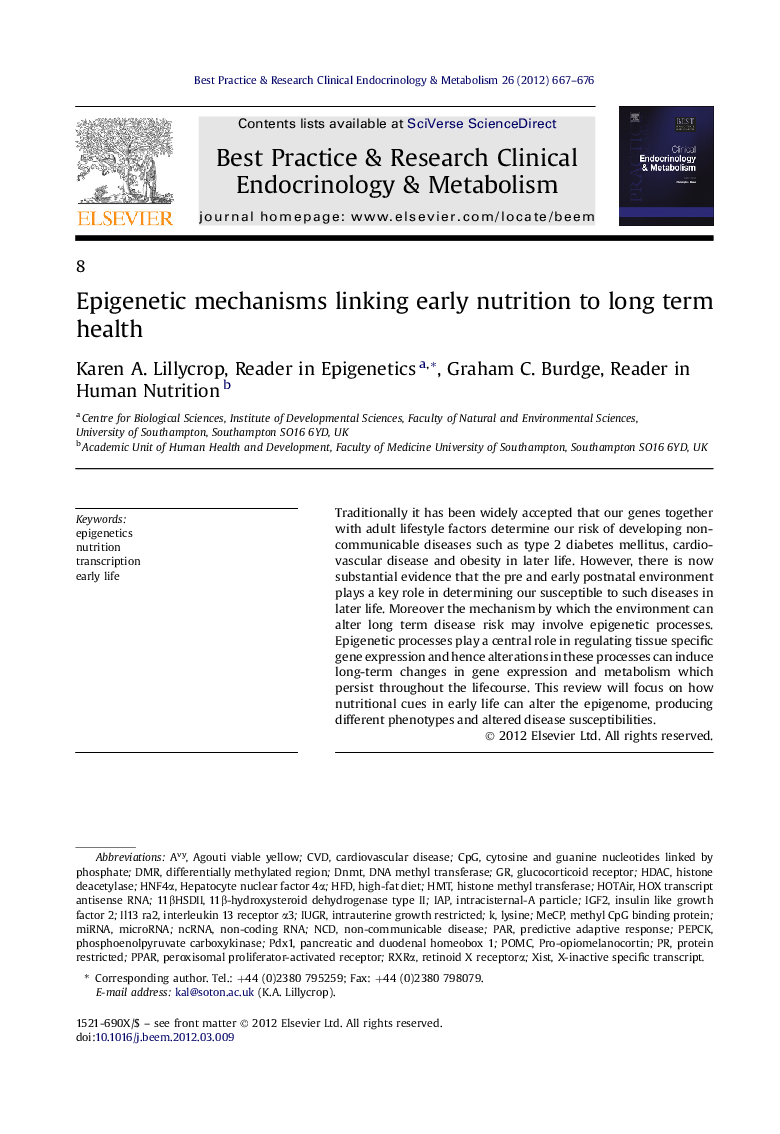| Article ID | Journal | Published Year | Pages | File Type |
|---|---|---|---|---|
| 2791857 | Best Practice & Research Clinical Endocrinology & Metabolism | 2012 | 10 Pages |
Traditionally it has been widely accepted that our genes together with adult lifestyle factors determine our risk of developing non-communicable diseases such as type 2 diabetes mellitus, cardiovascular disease and obesity in later life. However, there is now substantial evidence that the pre and early postnatal environment plays a key role in determining our susceptible to such diseases in later life. Moreover the mechanism by which the environment can alter long term disease risk may involve epigenetic processes. Epigenetic processes play a central role in regulating tissue specific gene expression and hence alterations in these processes can induce long-term changes in gene expression and metabolism which persist throughout the lifecourse. This review will focus on how nutritional cues in early life can alter the epigenome, producing different phenotypes and altered disease susceptibilities.
